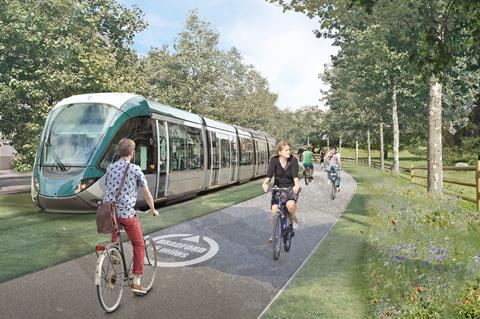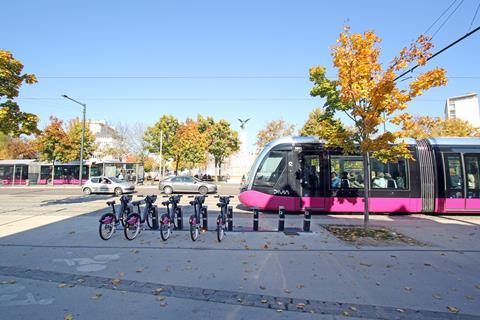
UK: A public call for ideas to inform the development of a Integrated National Transport Strategy for England was announced by the then-Secretary of State for Transport Louise Haigh on November 28, hours before she resigned over an unrelated matter.
Describing transport policy as ‘a series of bin fires valiantly being tackled by a gang of hobbyists who really, really love trains’, Haigh said the strategy would create a vision of how integrated transport systems should work, with local leaders empowered to meet the needs of their areas.
Haigh confirmed that mayors will be given a statutory role regarding the future Great British Railways. An Integrated Transport Commissioner is also to be appointed.
In a written statement to parliament, Haigh said ’there has been no national plan for how transport should be designed and delivered in England, which has led to a fragmented and inefficient system that lacks join-up and cohesion’.
She said walking and cycling should be the best choice for shorter journeys, public transport should be a more attractive option, and where driving is ‘the right choice’ it should be smoother and more predictable.
Haigh said the strategy would be ‘people-first’, rather than prioritising infrastructure; the government is to publish an infrastructure strategy in the spring to ’provide certainty to the supply chain, and help unlock private investment’.
No trainset in the attic
Speaking in Leeds, Haigh said ’there is sometimes a rather singular view of transport, that it’s perhaps not that high on the political agenda, that it is quite often a series of bin fires valiantly being tackled by a gang of hobbyists who really, really love trains.
‘And do you know what, there’s a bit of truth to that. And that’s OK, because we need people who really love — and understand — trains. But that’s not me. I do not have a model railway in my attic and, despite living in Sheffield, I don’t own an anorak.’
She said ‘this government is not interested in hoarding power in Whitehall. I no more want to be running an entire railway than I want a trainset in my attic.’
French network cuts the mustard

Haigh added that ‘if we look beyond our shores, we can see what’s possible and bring inspiration back home’, citing a visit to the Dijon, ‘a city with 164 000 residents, roughly the size of Chester’ where decisions are made locally and the buses and trams are operated under contract by Keolis. While Haigh said this was a private operator, Keolis is majority owned by French state railway SNCF.
Haigh said Dijon is using technology to ‘iron out the wrinkles’ that can put people off using public transport, with tickets and car parking priced dynamically depending on levels of air pollution, a single app covering every mode of transport.
Industry responses
The Urban Transport Group welcomed the ‘bold vision’, saying that along with further devolution it ‘will help to achieve this people-first approach to transport’. UTG said ’city regions are already making great strides in delivering joined-up transport networks as their leaders understand the needs of local people’.
The Transport Planning Society said ‘an end to the current piecemeal approach to transport policy is essential’, and called for the strategy to integrate transport planning with land-use planning at all levels.
The Railway Industry Association said an approach involving all modes ’is also an opportunity to set out a clear roadmap for rail investment, including of course for enhancement projects and long-term new and refurbished rolling stock pipelines’.
The Institution of Civil Engineers said it has been calling for a people-centred strategy for some time, and ‘an integrated strategy, well planned and executed, could help end the stop/start cycle of blinkered transport investment that is disconnected from wider social, economic and environmental ambitions.’
Mott MacDonald said the announcement was ‘not only timely but essential — it’s been more than 25 years since the last integrated transport strategy was created.’
Logistics UK was disappointed there was mention of freight. It said ’the UK needs a genuinely integrated transport strategy that meets the needs of the travelling public while facilitating the efficient movement of freight, which is critical for driving growth throughout the economy and delivering the goods that consumers and businesses rely on every day’.



